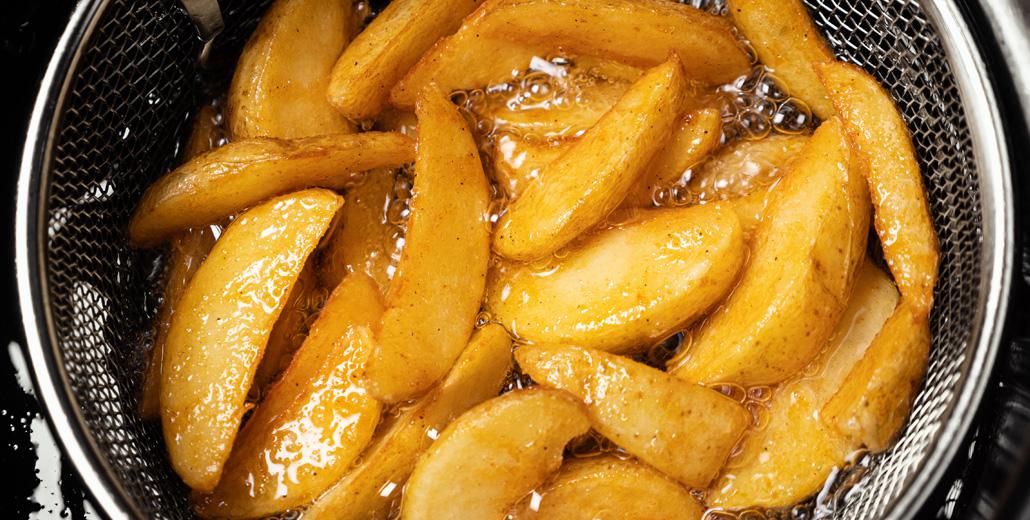
Deep fried foods can become addictive. There’s just something about the crispiness of deep-fried French fries and the creamy, fluffy texture of fried donuts. We won’t even start on fried chicken! But along with the risk to your waistline, there’s always the ultimate dilemma: what to do with leftover grease and oil?
You don’t ever want to flush it down the sink or toilet. Grease can build up and accumulate other debris, and the next thing you know, you have the King Kong of drain clogs. If your home has a septic tank, it’s even more critical that you avoid flushing down excess waste.
Luckily, there are a few alternative ways to use up your old grease and oil.
Reuse Grease
There’s a reason you hear old wives’ tales about saving bacon grease. Many experienced home cooks swear by rendered bacon grease to flavor foods. Not too long ago, every kitchen had a pot on the back of the stove for saving grease.
You can use bacon grease, lard, or even beef tallow as the fat for flakey pie crusts. Some swear by bacon grease for biscuits. Add a teaspoon or two to flavor cooked vegetables, like green beans.
To save grease for cooking, allow the pan to cool, but don’t wait so long that it congeals. Strain the grease into a wide mouth jar and store it in the refrigerator.
Well-strained, your bacon grease will last up to a year in the refrigerator. You can also freeze it if you want to save it longer.
Reuse Frying Oil
Professional cooks save deep-frying oil for future use all the time. After all, deep frying uses a several cups of it. If you’re using an expensive brand or formula, it feels tragic to throw it away after cooking one meal.
Simply strain it through a paper coffee filter and refrigerate to prevent spoiling until you can reuse it.
Another method from America’s Test Kitchens utilizes a mixture of cornstarch and water to collect all the particles from the used oil. It takes time, but it produces a very clean oil you’ll feel confident reusing in your cooking.
Be cautious about how many times you reuse the oil, as it degrades with subsequent heating. Most experts recommend three to four times for cooking meats and fish and up to 6 to 8 for vegetables and pastries. But don’t be afraid to finally dispose of it if it smells bad before then.
You don’t have just use it for deep frying, either. If kept in the refrigerator, you can reuse the oil in place of fresh in any recipe. Use it for frying eggs (unless you also saved some bacon grease) or any time you stir-fry.
Recycling Oil
More communities are finding ways to reduce, reuse, and recycle items we used to just throw away. Cooking oil recycling collection points are popping up all across the country. St. Lucie County has joined the program, and you can drop off used cooking oil at the county solid waste center.
Many companies convert used cooking oil to biofuels. Others process it into animal feed. It also takes the place of petroleum products in paint, cleaners, and plastics.
Recycling Grease
One way to recycle grease is to use it to feed wildlife. During cold spells, you can make a suet ball from leftover grease for wild birds. While South Florida doesn’t normally have cold winters, we experienced a few freezes last year that certainly made our population of migrant birds wonder if they’d arrived at the right place.
-
Collect leftover animal fats from cooking until you have one or two cups.
-
Gently melt the fats and strain several times to remove any meat particles.
-
Mix in ingredients like grains, seeds, dried fruits, birdseed, or even breadcrumbs.
-
Find something to mold your bird food, such as an empty tin can or muffin tins.
-
Place the filled mold in the freezer for 2 hours and then remove.
-
Tie your now-solid suet ball to a tree using ribbon or even hang it in a net onion bag.
Disposing of Leftover Grease and Oil
If you must throw away old grease and oil, make sure you do it correctly.
Dispose of used cooking oil by waiting until it’s cool and pouring it into a sealable container. Make sure the lid is tight before tossing.
For used greased, let the fat cool and become solid first. Then, scrape it into any sealable container you’re also throwing away. Coffee cans or those non-metal cans used for snacks and mixed nuts will work fine.
Don’t pour it down your sink or toilet!
However, if you do, make an appointment with the plumbing pros at Benjamin Franklin Plumbing in Port St. Lucie. We’ll remove that greasy clog for you.
